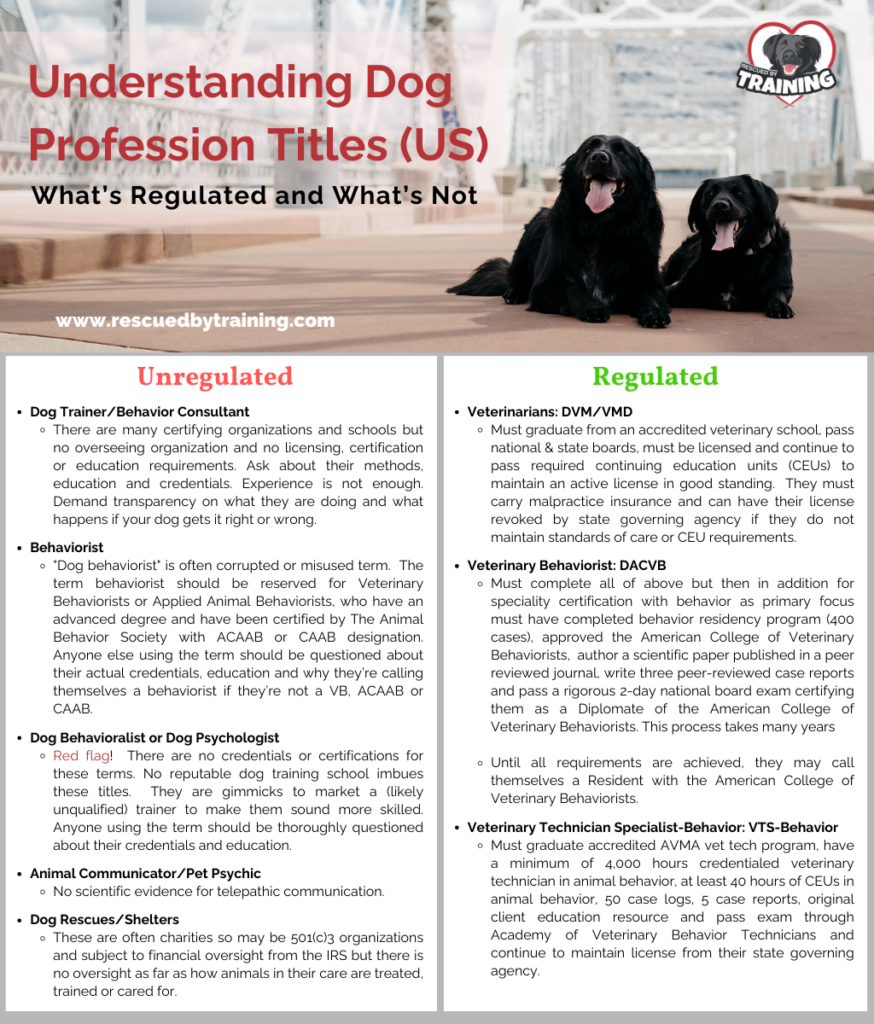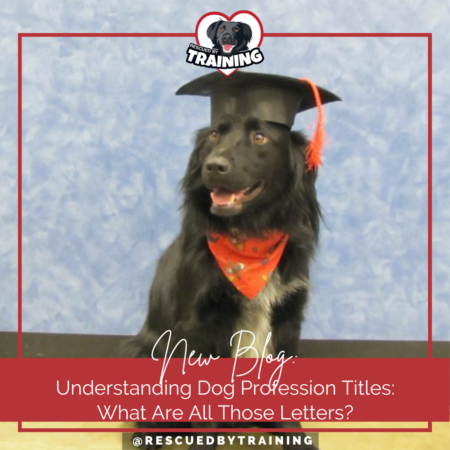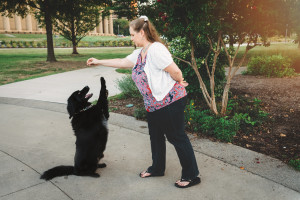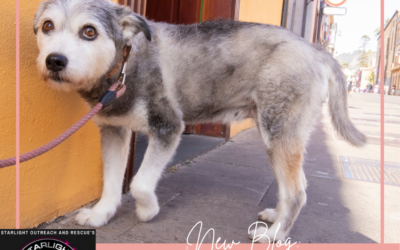Professional licensure is not required to call yourself a dog trainer in the US. If you’ve been around here a bit, you may have noticed a strong theme of transparency in my posts and on social media and you may have picked up on that already. Not only does this mean consumers have no protection and anyone can do practically anything to your dog in the name of training, it also means there’s a lot of muddy language around dog training credentials, titles and what means what. People claiming to be trainers or claiming to be certified trainers doesn’t actually mean much, if you don’t know who that certifying organization is or what their standards are.
As things stand right now, there are no standards for education, licensing, credentialing or humane treatment of animals to be a trainer. Anything goes. It is still completely legal to hurt, scare, shock, strangle, kick, throw things at, yell, leash jerk, cut off the airway of or otherwise intimidate a dog in the name of training. And there is little to no recourse for a consumer if a dog ends up worse, since they are considered property.
One day I hope we will have some sort of regulation and minimum requirements mandated by a central overseeing body but until then, it is buyer beware and it is on you, the consumer, to ask questions, to advocate for your dog and to walk away if you feel uncomfortable. Do not believe that just because someone claiming to be a professional who tells you that you need to do something that makes you uncomfortable is the right thing to do. You have the right to walk away.
In virtually no other industry could someone just hang a shingle on a whim and declare themselves proficient at skill and start charging money for that service without recourse. Would you be comfortable with your pilot flying the plane without proper training? How about someone doing an appendectomy without going to medical school or a person off the street coming in to do the electrical wiring your newly constructed home? Merely proclaiming “I’ve had dogs all my life” doesn’t mean that person has the proper education or credentials to train dogs or modify behavior any more than saying someone who has had teeth their whole life is qualified to do a root canal.
The lesson is this: DEMAND TRANSPARENCY AND ASK QUESTIONS.
And, remember, dogs are animals. There are no quick fixes. Boot camp, guarantees in behavior, promises of quick fixes – these do not exist. Nobody can guarantee any animal of any species will behave 100% of the time. If anyone promises to “fix” your dog quickly, run away! This is a huge red flag. Boot camps and the majority of board and train camps are using some sort of aversives like shock collars, which carry unintended fallout effects and do not modify behavior but only suppress it.
So what is regulated and what’s not? What do all those letters and credentials mean? What should you look for? Hopefully this will help clear things up a bit, to help make people better consumers and know what questions to ask when hiring a dog professional. (Please note: this is targeted for those in the US. The UK and Canada have different uses of some terms, including the term behaviorist.)

(Want this as a download? Grab it here!)
And if you’re trying to make sense of the acronyms and letters after people’s names, here’s an incomplete guide. I’ve intentionally left out any that endorse or are predominately aversive training methods like prong and shock. Some listed do follow LIMA training practices (least invasive, minimally aversive), so I do not fully endorse all of these but none are fully aversives endorsing.
- ABCDT: Certified by/ graduated from Animal Behavior College
- CAAB/ACAAB: Certified Applied Animal Behaviorist/Associate Certified Applied Animal Behaviorist from The Animal Behavior Society
- CABC or CDBC: Certified Animal Behavior Consultant or Certified Dog Behavior Consultant (there are also others I’m not listing but linked in their link) through the International Association of Animal Behavior Consultants
- CBCC-KA: Certified Behavior Consultant Canine through the Certification Council for Professional Dog Trainers (I hold this certification.)
- CCDT: Catch Certified Dog Trainer from Catch Canine Trainers Academy
- CPDT-KA: Certified Professional Dog Trainer – Knowledge Assessed through Certification Council for Professional Dog Trainers
- CPDT-KSA: Certified Pet Dog Trainer – Knowledge and Skills assessed through Certification Council for Dog Trainers
- CTC: Certificate in Training and Counseling – certified by/graduated from Jean Donaldson’s The Academy for Dog Trainers. (This is my alma mater.)
- CTT-A: Canine Training Technician, Accredited from The Pet Professional Guild’s Accreditation Board
- CSAT: Certified Separation Anxiety Trainer, from Malena DeMartini’s program. (I hold this certification.)
- DN-DCT: Dognostics Dog Training Certificate certified by/graduated from Dognostics
- DN-DBC: Dognostics Dog Behavior Consultant certified by/graduated from Dognostics
- FFCP: Fear Free Certified Professional from Fear Free Pets. This may also have additional letters: T=trainer, E=elite, V=et, G=groomer PS=pet sitter (I hold this certification Elite-Trainer).
- KPA CTP: Karen Pryor Academy Certified Training Partner through the Karen Pryor Academy
- PCT-A: Professional Canine Trainer, Accredited from The Pet Professional Guild’s Accreditation Board
- PCBC-A: Professional Canine Behavior Consultant, Accredited from The Pet Professional Guild’s Accreditation Board (I hold this certification.)
- PMCT: Pat Miller Certified Trainer through Peaceable Paws
- SA-PRO: Separation Anxiety Certification Course from Julie Naismith
- VSPDT: Victoria Stilwell Positively Dog Trainer through the Victoria Stilwell Academy
As you can see, there’s a lot of titles, and this isn’t even a complete list. It can be overwhelming and confusing for pet guardians to navigate but I hope this helps a bit. If you want this to reference later on, grab it here as a free download!
The term behaviorist is a particularly tricky one, because there are behaviorists, mostly Veterinary Behaviorists, who are certified by the American College of Veterinary Behaviorists but there are only about 80 VBs in the world. There’s also Certified Animal Behaviorists, given the designation CAAB (Certified Applied Animal Behaviorist) or ACAAB (Associate Certified Applied Animal Behaviorist) by the Animal Behavior Society and there’s about 50 of those worldwide. So it’s not terribly likely the trainer calling themselves a “behaviorist” actually has these credentials. But unlike calling yourself a veterinarian, which could have legal ramifications if you aren’t licensed as one, it’s less cut-and-dried when using the term behaviorist. And to further complicate things, other places like the UK, use the term much more generally, so those coming to the US from other countries may be further confused.
One day I hope we will have regulation and minimum requirements mandated by a central overseeing body. But until then, ask questions and walk away. Seek out a qualified trainer or contact me if you are unsure. No matter where you live, I can work with you, as I offer on-on-one remote sessions worldwide for all fear, aggression and separation anxiety cases! Book your session today.
Happy, Safe, Humane, Training!





